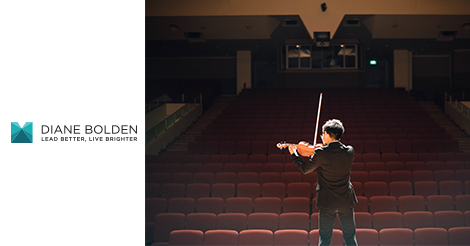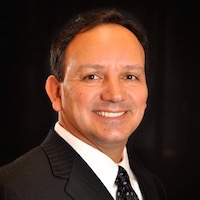Tag Archives: Presence
How to Create Moments of Meaning (Even in the Midst of Mania)
“You ready for the holidays?”
It’s a question people often ask each other this time of year. I don’t know if I’m ever ready – from the standpoint of having all the boxes checked, anyway.
I know there are people out there – you may be one of them – who finished their holiday shopping weeks ago, had their houses beautifully decorated on or before Thanksgiving day, and seem to find the time to send handmade cards to everyone they know. I have secretly dreamt of being one of those people, and maybe someday I will be.
I tend to identify more with those still scurrying around at the last minute. You know, the ones dashing to the mall on Christmas eve for that one last present they forgot about and return home to feverishly wrap gifts before people come over – all the while swearing that next year will be different.
What I really long for is to simply enjoy every aspect of the holidays.
It is a season of giving, sharing, and celebrating something bigger than ourselves. It brings us together and transforms our everyday lives into something sacred.
And this opportunity is always available to us.
With every gift we buy or wrap, every card we send, or every decoration we hang, we have the ability to infuse it with presence – our ability to be truly engaged not only with whatever it is we are doing, but with the bigger reason of WHY we are doing it – even if we get a late start.
Perhaps the ideal is not in being able to do more things sooner, but to put more of ourselves into the things we are able to do now despite whatever circumstances we find ourselves in.
When people pour their hearts into whatever they are doing, you can feel it.
The cards that arrive in our mailbox that have been perfunctorily generated don’t seem to move us as much as those people have taken the time to hand write something on – even if it is just our name. Likewise, the gifts that had some element of thought in them often end up meaning more to us than those someone spent a lot of money on. The true spirit of giving is more about the spirit than the gift itself.
And the spirit of giving and celebration doesn’t have to end in December.
We have the ability to enrich every moment of our lives with it. Albert Camus once said, “Real generosity toward the future lies in giving all to the present.” That means forgetting about all our preoccupations and busyness and being right here, right now – truly engaged in the purpose of whatever it is we are doing and deeply connected to whoever we are with.
In business and in life, this practice separates the most truly prosperous and successful people from all the rest. They have a knack for making others feel valued and for infusing meaning into whatever it is they do or invite others to do. They spend their time doing what is most important and pour their hearts and souls into it. As a result, they are living examples of whatever they believe most strongly in.
Perhaps this is the true art of giving, living, and leading – one that transcends holidays and spills over into our everyday lives.
And maybe it’s never too late to start.
If you want to enjoy more meaning and fulfillment along with stellar results all year round (both at work and at home), The Pinocchio Principle Unleashed: The Real Leader’s Guide to Accessing the Freedom & Flow of Your Authentic Genius can help you achieve it.
This exclusive 13-week leadership development experience goes beneath the surface of what most programs deliver, to help you learn to unleash genius in yourself and those you lead.
The Spring 2022 session will kick off in March. Enrollment will be limited to eight participants. Join the waiting list to have access to registration before it opens to the public.
Wishing you and yours a beautiful and blessed holiday season!
How to Find Peace in The Midst of Chaos (and why your future self will thank you)
If you stir muddy water, it will become murky and dark.
But if you allow the water to settle, the debris will eventually sink and you’ll be able to see more clearly.
The same is true of each of us.
There’s a lot to be stirred up about right now. And perhaps that’s why it’s more important than ever for us to find our calm.
Though our current Covid-19 response is leading us to drive less and stay home more, many of us are having difficulty finding places of peace and stillness. You might feel like you’re working more than ever, now that the lines between work and home are completely blurred.
Throw a kid or two into the mix whose routines (and lives) have been completely upended and you have a perfect mix for chaos.
And of course, there is the ever-present temptation to grab your phone or iPad or fire up the television to tune into the latest news or binge watch those shows on Netflix you’ve been wanting to see.
In addition to our external distractions there is the internal commotion of our never-ending thoughts, worries, and preoccupations.
It’s enough to make your head spin.
But perhaps there is hope amidst the chaos…
I recently read that for the first time in thirty years, the Himalayas are visible from northern India. Air quality has improved in several areas of the world, including right here in the United States. These improvements are said to largely be a product of the coronavirus response that has led to fewer emissions.
What if in addition to cleaning up our air we could find a way to clear our heads as well?
What if our future depended on it?
In such an unpredictable time as this, one thing is fairly certain: there is no more “business as usual”. Even after our social distancing and stay at home mandates have been lifted, things are likely to be different moving forward than they’ve ever been in the past.
Out of necessity, much of life as we’ve known it has had to change – often for the better. Many of the ways we have always done things will likely no longer be effective (or even relevant).
We have the opportunity to reinvent ways of working and being that weren’t serving us all that well and chart a new course into our future.
Now more than ever, we must cultivate the insight necessary to know what we need to do next.
And insight is a product of slowing down, quieting our minds and tuning in to ourselves and each other. It requires us to cut through the noise and create space for new ideas to land.
The best way to do that is to practice presence.
What exactly is presence?
The word present derives from the Latin past participle praesse meaning “to be before one”, from the roots pra – pre + esse – to be.
Presence is a state of being that’s achieved when we are truly in the moment, allowing it to unfold without judging it, labeling it, or getting lost in our thoughts about what it means or what we believe should be happening.
Presence allows us to cut through the clamor of our preoccupations, worries and fears so that our true selves can emerge. It is a gateway through which our intuition and inner wisdom enters and expresses itself.
A moment of presence is a state of grace that can produce great insights that help us to truly learn from our experiences, make the most of our opportunities and rise to our challenges in creative ways.
In moments of presence, we know who we really are and what we are truly capable of.
Have you ever noticed that people tend to match each other’s intensity and tone when they are together?
Comments about trivial matters are often matched with similar banter. Expressions of fear or dread often elicit responses that are equally charged, and expressions of anger have a way of provoking reactions that people later regret.
In a similar manner, moments of presence when shared with others can evoke powerful responses that can be revealing and transformational.
This is because when you are truly present with another human being you create a space that allows that person’s true self to come out as well.
This is why the best leaders have learned to become comfortable with silence. They listen more than they talk, and to allow themselves to become instruments that help others to recognize their own greatness – not necessarily through anything that say or do, but rather through moments of presence that are created and shared with others.
So how does one cultivate a moment of presence?
It is really rather simple, though far easier said than done.
1) The first step is to be still.
That’s right. Sit still. I know it goes against everything you were probably taught about getting things done and being useful. But do it anyway.
You can practice now, while you read this. Become aware of your breathing, of the space you are sitting in, of the weight of your body and how it feels in this moment. Feel the life inside you and trace it to each part of your body. Listen to the sounds around you. Take a deep breath. Let it out slowly.
2) Become aware of your thoughts.
Observe the activity of your mind as it continues to process whatever is there – thoughts like, “this is silly, really – I have way too much to do to be sitting here, doing this…” and “I have to remember to call so and so back today,” and “What did my [boss, colleague, friend, etc.] mean when he/she said…”.
Recognize that you are not your thoughts, but rather the thinker of your thoughts. Simply watch them parade around, without getting sucked into them. Feel how much bigger you are than all of that. Continue to breathe it in.
3) There really is no step three.
Simply continue to repeat steps one and two, immersing yourself more deeply into the experience with each breath.
You don’t need to do this for an extended period of time, unless you want to. Often even a couple of minutes are sufficient to bring you to a more intense state of awareness and aliveness.
In these moments of presence, you will experience things on a different level – one that allows you to respond from a deeper, wiser part of yourself. And when you are with others, you will bring out that deeper, wiser part of them as well.
The wonderful thing about practicing presence is that it creates a fertile landing place for creativity and new ideas. The more often you do, the more frequently you may find yourself receiving inklings (often when you least expect them) about solutions to even the most confounding of problems.
Presence is incredibly powerful to practice with others as well, and a wonderful thing to engage in with the family members in your home (who you are likely seeing more of than ever before). The process is the same, except that you expand your awareness to take in the other person as well.
First, put your phone down. Turn off your IPad, computer, television and/or any other device that could potentially steal your attention and focus.
Then, look into the eyes of the person in front of you, and listen to what they are saying. But listen to what they are not saying as well.
Presence is more about being than doing. So, allow yourself to truly BE with another, devoid of judgments, labels, and agendas. When you listen from this place, you are like water to a thirsty plant, allowing others to open up and soak in needed nutrients.
And in this space, they may just find the answers they seek as well – not because you are giving them, but because you have created a space that is illuminating for everyone.
For more on practicing presence, cultivating insight, and reinventing the way you live and lead, check out The Pinocchio Principle Unleashed: The Real Leader’s Guide to Accessing the Freedom & Flow of Your Authentic Genius. Registration for the fall session will open soon (and if you join the waiting list, you’ll have first dibs on the limited seats that will become available).
Image by Gordon Johnson from Pixabay.
How You Can Use Frustration To Improve Your Effectiveness
“I’m so tired of feeling unorganized and scattered all the time.”
A client told me in a recent meeting. He added, “I come into the office and there are papers flung all over my desk, half started projects buried in piles with new requests heaped on top of them. But I never seem to have time to go through them because by the time I get there, a line of people waiting to talk to me has already formed outside my door and I have no choice but to spring into action. And my days are full of requests that add new papers, projects and action items to a pile that grows faster than it shrinks.”
He felt like Sisyphus – like he was constantly pushing a big rock up a hill only to have it roll back down as soon as he got near the top.
“What do you think I should do about it?” he asked me. I knew he wouldn’t like my answer.
“Move into it,” I told him. “Tell me more about how starting your day like that affects the quality of your life.”
He was perplexed. “Why would I want to move into something so awful? Shouldn’t I be figuring out how I can move away from it? Rise above it?”
He was essentially living as Bill Murray’s character in Groundhog Day, constantly reliving the same day over and over again. However, there are hidden gifts in such a predicament.
Fuel
That is the reaction most of us (including yours truly) have when faced with an unpleasant predicament. But rising above an unpleasant predicament often requires us to change habits or patterns that are ingrained and comfortable. And initiating and sustaining a change like that requires fuel — fuel that will allow us to break through our obstacles and limitations at the very moment when it seems most difficult.
Change occurs when the pain of the current state is greater than the perceived pain of making a change, and the pleasure of making a change is greater than the pleasure (or payoff) of staying the same.
When you truly move into your frustration, you begin to open your eyes widely to recognize the impact a problem is having on your life. You allow yourself to accept that this pain will continue until you do something about it. And until you are truly ready to do something about it, you will continue to do what you’ve always done and suffer as a result.
This can be done long before you know what that solution is. And just as you can move into your pain, so too can you move into the pleasure of what life would be like without your problem. This too, serves as fuel that will ultimately allow you to do what it takes to create and implement a lasting solution.
Insight
Moving into your frustration illuminates not only the problem, but also the underlying factors that contribute to and exacerbate that problem. It gives you insight.
Most of us instinctively move away from pain, firing shots over our shoulder at what we believe to be the antagonist without really recognizing or locking onto a target.
To really know what needs to be done to slay the beast, my client needed to take a closer look and recognize what it eats, how it grows stronger, and how he might unwittingly be feeding and nurturing it. That’s exactly what moving into the frustration with a spirit of curiosity does.
When he got curious about his predicament, he began to notice that he had a tendency to book his appointments back-to-back, starting first thing in the morning and say yes to more things than he could realistically accomplish. He realized that he didn’t have a clear sense of what was truly a priority and that in the absence of that clarity, he was making everything number one — except his own sanity.
The more awareness he cultivated in the presence of his frustration, the more he began to identify and understand what was really causing your frustration. This also led my client to discover and embrace the third gift of frustration.
Possibility
Insight opens the door to possibility. Once you have an understanding of the factors that cause or contribute to a problem, you begin to recognize a multitude of options that can lead to lasting resolution.
In the days and weeks that followed, my client identified a number of strategies that could potentially work for him, including scheduling, communication, and delegation tactics.
The next time you feel like you are living the life of Bill Murray’s character in the movie Groundhog Day, remind yourself that frustration comes bearing gifts. Reliving the same experience over and over again isn’t so bad if it ultimately yields fuel, insight, and possibility. Move into your discomfort, pay attention, get curious, and connect the dots. Then, you too will find a way to transform your frustration into freedom.
If you are interested in additional strategies for recognizing and moving beyond self-limiting patterns of behavior and thought, I encourage you to check out The Pinocchio Principle Unleashed: The Real Leader’s Guide to Accessing the Freedom & Flow of Your Authentic Genius, an exclusive 13-week leadership development program kicking off the week of April 1st.
Leading with Presence
 Driving to an appointment the other day, I went to make a right turn and couldn’t help but notice the people in each of the cars lined up waiting to turn left. One woman had a forlorn expression, and her head drooped over her steering wheel. The woman in the car behind her revealed a smile and an upward glance that seemed full of joy and anticipation. The face of the man in the car behind her was twisted up and his shoulders appeared to be close to his ears. His eyes were locked onto his blackberry, which he held in his free hand.
Driving to an appointment the other day, I went to make a right turn and couldn’t help but notice the people in each of the cars lined up waiting to turn left. One woman had a forlorn expression, and her head drooped over her steering wheel. The woman in the car behind her revealed a smile and an upward glance that seemed full of joy and anticipation. The face of the man in the car behind her was twisted up and his shoulders appeared to be close to his ears. His eyes were locked onto his blackberry, which he held in his free hand.
I smiled as I realized that I could relate to each of these people. I could have been any of them at any given time. And then the thought occurred to me that I could be any one of them as the day progressed. Which would I choose? The answer to that question could very well determine the quality of my entire day, and could also quite likely impact the quality of the day of those around me as well.
Every once in a while when I go out running I see a little old man riding a beach cruiser. In the dawn hours, as the sun begins to rise above the horizon, the light on his handlebars shines brightly. He is kind of a round man with short, fuzzy white hair and bright blue eyes. He pedals his bicycle so slowly that it is a wonder they both don’t just fall over. But what is most striking about him is that he is always smiling.
Every time I see this man, rain or shine, it seems he has something to be happy about. And his smile isn’t just the polite grin that people often flash as they enter each other’s space. It is the kind that comes from a deep satisfaction and wonderment with life. The little light on his bicycle shines brightly at the crack of dawn, but the radiance around him is even more vibrant. I find myself hoping to see him on my morning runs and experiencing a wave of joy and delight every time I do – feeling lighter and happier just for the experience of having crossed his path. His presence alone is truly inspiring.
I think emanating a positive presence is one of the most crucial things leaders can do for people. And to have this kind of influence and effect on others, you don’t have to have a fancy title, a bunch of people reporting to you, or even be a part of an organization at all. People pick up, consciously and subconsciously on the energy we emanate – and for better or worse, those we spend a lot of time around will often align themselves with it. True leaders – in any setting or vocation – are consciously aware of the tone they set through their own presence. They use it to uplift and inspire others, seeing the brilliance of everyone and everything around them and always reflecting it back.
I wonder whether that little man on the beach cruiser has any idea of how profoundly he has affected me. And I wonder if you realize the effect you can have on the lives of everyone around you as well… maybe without even having to say a word.
“We can do more good by being good, than in any other way.”
~ Rowland Hill
Implications for Real Leaders
The Real Leader Revolution is bringing to a head the need for businesses to better tap the power and potential that exists within the people who are the lifeblood of their organizations. This energy, when properly catalyzed and harnessed, will create the kind of value that earns loyal customers, increased market share and strong, sustainable profitability.
To find out more about how you can unleash this talent, energy and potential in your own organization (starting with yourself), sign up below to receive your copy of The Real Leader Revolution Manifesto as soon as it is released.
3 Fears That Keep Leaders From Playing a Bigger Game
You’ve just been promoted. The excellent work you have been recognized for has landed you a new job with expanded responsibility and significance. Perhaps you lead an organization of other talented professionals who now look to you for guidance and support. Maybe you are a leader of leaders.
The game you were playing just got bigger – and so did the playing field.
And your role has changed. What earned you this promotion will not be enough to allow you to succeed in your new role. In fact, if you continue to do what you did before, you may actually sabotage your newfound success.
You have gone from player to coach — or perhaps manager/owner. And if you jump back into the game, no one will be there to call the shots, to develop the talent, to create a strategy to advance the standing of the team, to gain the supporters and funding that will allow the team to continue to play.
Yet despite these consequences, you — like many leaders faced with similar opportunities — may have difficulty with the transition. You may have fears:
- Fear than no one can do things as well (or better)
- Fear of becoming obsolete
- Fear of failure
Let’s talk about each of these, starting with the first one…
Fear that no one can do things as well (or better)
The problem with this fear is that it is actually well-founded. Chances are, especially if you are at the top of your field, very few will be able to do the job as well as or better than you can. But that doesn’t mean you should be doing it for them — or even along with them.
And yet you will be tempted to. Especially when the stakes are high. Or when things get extremely busy and it seems like targets will not be met if you don’t jump in or take over altogether. You may hover over people, micromanaging them or smothering them with well-intentioned guidance.
But your very fear that things will fall through the cracks may well cause that which you most want to avoid. Maybe not in the short term. In the short term, you may revel in your ability to keep the balls from dropping and save the day. But as more and more begins to be added to your plate, your problem of not having people who are skilled enough to take the baton will be even greater than it was before.
Worse yet, you will have conditioned the very people you need to develop to become dependent on you and quite comfortable performing at much less than their true capacity. In the meantime, the bigger, more strategic work that you have graduated to will be piling up and fairly significant opportunities will pass you by.
Your people may well be on a pretty steep learning curve at the beginning. They won’t get everything right. And they may resist taking on the responsibilities you used to perform. But you need to transition from performer to coach.
Give them opportunities to try things out. Let them make mistakes. Then help them to learn from those mistakes and perfect their craft. And do the same for yourself in your new role.
This leads us to the second common fear that keeps leaders from playing a bigger game.
Fear of becoming obsolete
It’s not necessarily a rational fear. After all, leaders who are on the brink of playing a bigger game have plenty to do. They have a whole new role to fill. But that doesn’t stop people from worrying at some level that if they teach and empower others to do what got them accolades and attention that they will somehow lose their edge and fade into obscurity.
Often when people have performed a certain role or become masterful at a particular skill, it can become infused with their very identity. And until they have performed in their new role for awhile and become accustomed to the different kinds of activities and opportunities that it brings, they are likely to continue to identify with their old role. Which may lead them to wonder, “if I’m not that anymore, who am I?”
This ambiguity and lack of role clarity can send people back to what they know is comfortable and familiar, even when they have outgrown it. And even when going back there isn’t in their best interest (or the best interest of those they lead.)
To counteract this, it is important to fully grasp the opportunities and possibilities that playing a bigger game brings. It allows you to go from being immersed in the game with a view limited from one point on the playing field to seeing the game from several different angles. You can evaluate each player’s contribution and the way they work together.
You can change the way the game is played — and in some cases, even change the rules. But only if you free yourself up from the myriad of tasks that will always be there beckoning you to come back into the operational and out of the strategic. And the lure of the old role becomes even more enticing when you factor in the next fear that keeps many leaders from playing a bigger game.
Fear of failure
When you go from executing the plays to determining what those plays should be, you enter unchartered territory. First off, it is likely something you won’t have a lot of experience doing. And when you don’t have a lot of experience doing something, it is uncomfortable.
You may not be very good at it in the beginning. It will be messy. You will second-guess yourself. And you will likely miss being able to do your work with the same level of confidence and ease that you did before.
It will feel a lot like going from being a senior to becoming a freshman again.
Second, the very nature of being a strategic player will require you to navigate through uncertainty and ambiguity. You will be called on to blaze a trail where none previously existed. While this can be incredibly exciting and invigorating, it can also be somewhat daunting and stressful.
And when the pressure gets high, you may find it incredibly tempting to get sucked back into doing things you shouldn’t be doing anymore. Things you can check off your list and feel a sense of accomplishment from. Things that restore your confidence and give you the illusion of being in control. Things that would be better delegated to others. Or not done at all.
So when that happens, you need to remind yourself that whatever you did that allowed you to rise to new heights wasn’t likely something that always came easily to you. You had to start somewhere and struggle in the beginning before you began to gain competence and confidence. But you stuck with it and gradually got better and better. And you can do that again now.
Leadership is about “going before” others. Your new promotion will require that you wade through your fear, your discomfort, your resistance and your uncertainty to find within you the core of your true potential and act from it. And as you do so, by your very example, you will lead others to grow, expand, push their limits and play a bigger game as well.
Playing a bigger game often brings pressure and anxiety. But it doesn’t have to. You can make a bigger impact without running yourself ragged – and enjoy the process along the way. The Real Leader’s Guide to Freedom & Flow Group Intensive will show you how. Though the spring program is now full, you can get on the waiting list for priority access to the fall program, kicking off in September. For more information, visit The Real Leader’s Guide to Freedom & Flow Group Intensive.
Combating Fear With…Martial Arts?
Though I have been studying and reflecting on the process of working through fear for the better part of my life, my learning came to a head when I was thrown into an environment that provoked a whole spectrum of fear and anxiety. As a martial artist, after learning and practicing basic blocks, kicks, and punches, the time came to take it up a notch and begin to spar.
What does sparring have to do with your life?
What I have learned over the years as I have continued to develop my skill in this area is that sparring is metaphorical for just about any challenge you could possibly be faced with that evokes fear — making a presentation (or any kind of performance), pitching a proposal, going to a job interview, or speaking your mind, just to name a few.
These situations lead you to question whether you have what it takes.
And no matter what the challenge is, there is something at stake — your status, your security, your reputation, your comfort, your pride. However, there is one differentiating factor: with sparring there is a pretty high likelihood that you will get punched in the nose. Literally.
While many lessons come from having positive experiences, much of what I learned about working with fear came through trial and error — a lot of error.
My first error allowed me to learn about focus.
Focus is determined by what you allow to occupy your mind.
When I first started sparring, my focus was on getting it over with. I was fairly preoccupied with a feeling of inadequacy that led me to temporarily forget much of what I had learned over the previous years. Rather than trusting in what I had the ability to do, I became preoccupied by what I did not want to happen — getting hit.
And as a result, I got hit. Hard.
Then, I didn’t want to spar again for a really long time. I took myself out of the game. I allowed the fear to stop me. And my training stagnated. Until the pain of stagnation became greater than the pain of the physical blow.
When I got myself back in the game, my mind shifted from retreat to advance.
Instead of fixating on what I didn’t want, I zeroed in on what I did want. It wasn’t about not getting hit. It was about pushing through the fear. It was about applying what I had learned. It was about having more faith in what I did know than what I didn’t. And it was proving to myself that I had it in me to rise above the challenge.
I threw more punches. I closed the gaps. I began to bob and weave. I learned how to lure my opponent in so I had him right where I wanted him.
But what does that have to do with facing fear off the sparring mat?
Everything. No matter what you do, you have the choice to focus either on what you are moving toward or what you are moving away from. When you are fixated on what you want to avoid, you will hedge your bets. You won’t go all out. You’ll watch the clock. And you won’t really be engaged. You’ll cheat yourself out of the joy of the experience.
When you move toward something, you marshal the forces of desire. You ignite passion. You make what you want more important than what you fear. And this gives you the fuel to do what you really want to do — in spite of the fear.
The second tool for moving out of the grip of fear is presence.
Fear has you consumed with worrying about the future or fixated on something from the past. It keeps you in your head and prevents you from being immersed in what is happening right in front of you.
When I would try to remember a technique or think too much about how to properly execute anything, I’d miss what was happening and get hit. I had no real concept of what was happening, what was coming at me, or what I needed to do to deflect it. I felt as though I was in a blender, at the mercy of the blades and centrifugal force.
Ironically, being in my head kept me in a state of panic that kept me from thinking clearly. In fact, I became so gripped with panic that I forgot to breathe and ended up exhausting myself almost immediately.
In non-sparring environments, being in your head costs you opportunities.
When you are giving a presentation and are so intent on what you prepared that you fail to see that your audience is confused, or bored or irritated, you risk losing them. In a sales setting, being determined to stick to your pitch when your customer has questions that you didn’t plan on can keep you from making the sale.
The irony is that not deviating from what you planned because you are consumed by fear keeps you from being present and often ends up leading to that which you are most afraid of. The antidote? Let go of your preconceived ideas and hold your plans loosely so that you can be present.
When you get out of your head and become present, things slow down.
When I immersed myself in what was happening in front of me while sparring, I realized that every time my opponent would throw a punch he left himself wide open. Rather than worrying about getting hit, I began to look for vulnerabilities. And I learned that I could get him to raise his hands to his face if I threw a few high punches, which would allow me to land a couple low ones while he wasn’t expecting it.
I went from jumping around like a cricket without breathing to moving more deliberately and strategically and conserving my energy. Instead of allowing my opponent to back me into a corner, I learned to pivot and use his own force against him.
In any situation, being present leads to better connections and higher performance.
You will take in more information. You will breathe more deeply, get more oxygen to your brain and access higher creativity. You’ll be more likely to make whoever you are talking to feel more important, because you’ll be more focused on him and not yourself. You’ll think more quickly on your feet and come up with better solutions on the fly.
These insights led me to realize that often what is more important than preparation is practice, which brings us to the third tool: desensitization.
The more you expose yourself to what you fear, the less impact the fear has.
Fear never really goes away. It is a human emotion that is wired into our DNA. While we can’t change the fact that it will be ever present, we can diminish the effect it has on our performance. What allows the fear to diminish, is repeatedly being in the presence of what you fear and realizing that you will be okay.
The first time I got punched in the nose, it was horrible. And though I went to great lengths to keep it from happening again, it did. And when it did, I realized that the memory of it was far worse than the reality.
The more I sparred, the more I began to become confident in my ability to prevent it from happening. And the less my fear kept me from doing what I needed to do.
Many altercations and escalations are the product of untamed fear.
The importance of learning to spar is to develop within the martial artist the confidence to handle a physical fight if necessary — in order to prevent a conflict from escalating to the point that requires any force at all.
And the implication for each of us is that becoming confident in the face of fear allows us to rise to any challenge or opportunity with grace, wisdom and victory. In so doing, we inspire others to follow our lead.
Eleanor Roosevelt urged “Do one thing every day that scares you.”
What would that be for you? Chances are it is connected to something you really want for yourself. As you focus on what you’re moving toward, stay fully engaged in the game and the joy of playing it, and have the courage to repeatedly put yourself in the presence of your fear, the words of Henry Ford will ring true for you as well:
“One of the greatest discoveries a man makes, one of his great surprises, is to find he can do what he was afraid he couldn’t.”
Staying fully engaged without succumbing to fear, pressure and overwhelm can be tricky. The Real Leader’s Guide to Freedom & Flow Group Intensive will give you approaches and methodologies that help you rise to the occasion and not only get better results, but also enjoy yourself in the process. Though the spring program is now full, you can get on the waiting list for priority access to the fall program, kicking off in September. For more information, visit The Real Leader’s Guide to Freedom & Flow Group Intensive.
Why Losing Your Passion for Work is a Bigger Problem Than You Might Think
Has work become a bit of a grind?
You might tell yourself that work isn’t supposed to be fun – that’s why they call it work. But when you spend the majority of your waking hours just getting through the day or counting down to the weekend, you have a bigger problem than you might think.
Most of us don’t start our professions that way, but over the years disappointment, frustration and pressure can lead to disillusionment, disengagement, and burnout. Lack of passion and joy on the job will hit you hard in three major areas:
- Personally
- Professionally
- Organizationally
Let’s take a look at how work becoming a grind affects you personally.
You might think that as long as you can enjoy yourself after five (or six, or seven) and on the weekends, you will be just fine. But when you spend the better part of your day on a kind of autopilot, feeling like you’d rather be somewhere else, it’s hard to keep that negativity from spilling over to the rest of your life.
You may find yourself irritable, preoccupied, exhausted or just brain dead.
And whether you know it or not, that infringes on your ability to fully enjoy the things, experiences, and people in your personal life that you hold most precious.
You may even have a decent paycheck and enjoy a position of influence and status in your organization. But when the work you spend more of your waking hours doing is a continual grind, it’s easy to begin feeling as though life itself lacks meaning and fulfillment.
Perhaps you’ve made the decision (consciously or unconsciously) to put your personal happiness on the backburner in the name of your professional success and upward mobility.
Well, unfortunately lack of passion and joy on the job has a negative impact on your professional effectiveness as well. Let’s take a closer look at that.
Productivity
You can try all you want, but when you are exhausted and overwhelmed you will work very long days spinning your wheels without getting a whole lot done. You may think you just don’t have enough time to finish everything on your plate. And while it is true that time is finite, your real problem is lack of energy.
Creativity and Problem Solving
Lack of energy makes everything take far longer than it should. It blocks you from accessing your creativity, leads you to unnecessarily complicate things, and pushes the solutions to your problems just out of reach. All of this will contribute to a feeling of being unable to get important things done, which will cause you to work longer hours and become even more exhausted.
Influence
If your job requires you to have even the slightest degree of influence over others, consider this: getting someone excited about doing something is largely a matter of sharing your enthusiasm. But enthusiasm isn’t something that is easily feigned. And when you try to fake it, you will come across as being disingenuous, which will keep others from trusting you.
It’s exceedingly difficult to get anyone — whether they are your coworkers, your direct reports, or your customers — to become excited about something you can’t muster up the passion for yourself. And while we’re on the subject of coworkers, direct reports, and customers, let’s talk about the impact lack of passion and joy on the job has organizationally.
If you are a leader of others — whether you know it or not — you are setting the tone for the entire organization.
If you are not feeling emotionally committed, passionate, enthusiastic and connected to your work and the people you partner with to do it, chances are the people you lead will not be feeling it either.
Employee Engagement
Research indicates that as much as 70% of U.S. workers are not engaged. That translates into people who are physically present on the job, but not emotionally or mentally all there. When people are disengaged they go through the motions, doing as little as possible to fly under the radar.
The Cost of Complacency
This complacency causes all kinds of problems, including low quality products and services, plummeting productivity, low creativity and innovation, strained customer relationships, intra and interdepartmental conflict, absenteeism, high turnover, and ultimately low profitability. It does little to attract key talent, and certainly does not contribute to having a competitive advantage in the marketplace.
What does that have to do with you?
Engaged employees are people who feel part of something bigger than themselves — an organization with a shared purpose that has meaning to them. And they want to work for a boss who is turned on and tuned in to the organization and them as people.
If you have no passion or joy for your own work, you will be hard pressed to inspire it in others. In fact, you could end up unwittingly sucking the joy from those who already are engaged, and/or driving them to look for work elsewhere.
In Summary
Losing your passion and joy at work has significant implications for you on three different levels:
(1) Personally. You just can’t turn it on and off like a light switch. If you are feeling a lack of passion and joy at work, chances are good it will translate into your personal life, like a dark cloud that follows you around despite your insistence that you can shoe it away. You deserve more out of life than that.
(2) Professionally. The overwhelm, frustration, and exhaustion you feel is likely keeping you from performing at your best. While you may be working very long hours, your problem is not lack of time but rather lack of energy. Lack of energy is accompanied by lack of creativity, problem solving and influence. Energy comes with passion and joy. And when passion and joy are lacking, your performance will be lacking too.
(3) Organizationally. Just as passion and joy can be contagious, so too is the lack of it. A leader’s lack of passion and joy gets translated into disengagement, both for the leader, and the followers. Disengagement negatively impacts productivity, innovation, customer satisfaction, employee recruitment and retention — and ultimately profitability.
So if you feel like work has become a grind — but not a problem you have the luxury to address right now, think again. It may well be that you can’t afford not to. Rejuvenating your passion and joy on the job is easier than you think. And it doesn’t necessarily mean that you have to find another job.
Consider making reigniting your passion at work a priority.
And if you are interested in receiving some support and guidance, I encourage you to check out The Real Leader’s Guide to Freedom and Flow Group Intensive, an exclusive twelve-week small group mastermind/coaching program/online training course kicking off on March 20. Sign up before March 10 and receive a 15% early bird discount!
Getting Connected: What Intuition and the Internet Have in Common
“Intuition will tell the thinking mind where to look next.” ~ Jonas Salk
Lately, I have been marveling over the wonder that is the internet.
My kids called me “ancient” when I explained that when I was a student, doing a research paper entailed spending hours in a library pouring over books and periodicals to get the required information. They can’t imagine what a world without the internet would be like. And frankly, neither can I. The vast amount of data available at our fingertips at any given moment is truly amazing. Most of us don’t really think all that much about it anymore. We just expect it.
What if you had a faster way of accessing your inner wisdom?
After musing a little more, it hit me that the logical mind is to the library as intuition (or gut instinct) is to the internet. When we are in our heads, using logical, analytical thought it’s a lot like only being able to read the books on a bookshelf, or using a computer that is offline. We only have access to the data that is stored in the immediate vicinity, which can be largely outdated or even obsolete.
And living in our heads often requires quite a bit of time and energy to try to figure stuff out and make things happen just the way we think they should. When it doesn’t, we often get frustrated, try harder to get everything to work, and ultimately feel like we just keep hitting walls. The frustration can lead us to cut ourselves off from our intuition, which like the internet, has access to far greater things than we might realize.
Intuition connects us to a rich source of data we may not otherwise notice.
Accessing our intuition allows us to connect to knowledge that surpasses what we can directly see, feel, hear, touch, or taste. We plug into information that allows us to feel connected to others – to hear beyond the words they are speaking to what they are not saying but feeling. We tap into the realm of possibilities and opportunities and begin to discern what we can do to leverage and act on them. We can also pick up warnings about options that are not in our best interest. When we are in our heads, we miss these things and/or inclined to resist them because they are seemingly irrational or inexplicable.
Connecting to intuition allows us not only to receive data but also to send it.
It’s a lot like doing a search on the internet. When you want to learn about something, you enter a key word and then receive a variety of links that will take you to more information on the subject. Similarly, when you set your intention on something you want in your life – peace, clarity, or a satisfying resolution in some conflict or challenge – you send a signal to the vast field beyond what is in your head that gathers information and energy aligned with that intention and brings it into your awareness. You access an infinite field of creativity and wisdom from which the greatest inventions, discoveries, and creations of our time originated.
We all access intuition in our own way.
For some, it is visual – like seeing a picture or words on a screen or in the mind. Others can get it through audio, perhaps picking up words in a song, a conversation, or even hearing words in their heads. And many of us get a feeling or a strong prompting to do one thing or another. Sometimes our experiences themselves take on increased significance when we begin to recognize that what is taking place has some relation to our inquiry or intention. When we act on these inklings, things have a way of falling into place in such a way that our intention comes to pass.
Unlike the internet, our connection to this greater field is always accessible.
When we consciously rely on it, keeping our thoughts focused on what we want most in life, we will experience a sense of flow, peace, and deep satisfaction that mirrors our state of mind. When we allow our connections to become interrupted with frustration, doubt, anxiety and fear, we tend to draw to ourselves experiences that match those thoughts.
Try it and see for yourself.
The next time you catch yourself feeling anxious or stressed—frustrated about not being able to solve a problem, resolve a conflict, tackle a challenge—make a conscious decision to move from your head to your gut, and then balance the two. Choose what you want to experience and allow that to be your guiding intention. Your intuition will allow you access to ideas and possibilities that are just outside the boundaries of your mind, and your head will help you process and act on that information in a way that brings you what you want.
Accessing your intuition enables you to up level your leadership and your life.
If you are interested in a guided experience that allows you to reconnect to your inner wisdom and strength and find the answers you need to usher in a greater sense of meaning, higher level of performance, and lasting fulfillment, I encourage you to check out The Real Leader’s Guide to Freedom and Flow Group Intensive, an exclusive twelve-week small group mastermind/coaching program/online training course kicking off on March 20. Sign up before March 10 and receive a 15% early bird discount!
Ringing in the New Year: Why Looking Back is as Vital as Looking Ahead
There is something magical about being at the threshold of a new year.
It is like climbing to the top long staircase to find ourselves on a landing, standing before a large glimmering door just waiting to be opened. As we look down, we realize how far we have climbed to get here. Yet, we cannot help but wonder what lies behind the door.
Often we underestimate the amount of growth we have achieved.
It’s important to take some time to reflect on the unique combination of experiences that have led to both successes and disappointments and what we have learned from them. When we do, we often gain the insight that helps us become aware of what we most need to do from this point forward.
I often work with people who feel they are ready for a change, but aren’t sure what that change should be. They aren’t necessarily miserable in their jobs or other areas of their lives – they just long for something that will fill them up in ways they haven’t been fulfilled in the past.
When I coach people who feel this way, they often want me to tell them what the next best step is – give them the answer, or perhaps a step-by-step process that will lead them to find what they seek. Of course, no person has these answers for another. Our greatest challenge and opportunity is to find them for ourselves.
Each of our lives has a story with perfect order and meaning.
As within a novel or screenplay, each character has a specific relationship to the main character and every scene has some relevance to his growth and evolution. There will be victories and disappointments, as well as twists and turns that transition us from one to another and back again.
We will have occasion to laugh, cry, and experience a myriad of other emotions that are somewhere in between. And as a result of this perfect combination of events and mini-plots, we discover ourselves to be better people.
When we are reading a book or watching a movie, the perfect order is often easier for us to see than it is for the characters enmeshed in the stories we are watching. Yet, the mystery and intrigue, the humor over each misstep, and the courage we see the characters exude to find their way give substance to the story and allow us to leave the book or the theatre feeling moved or inspired in some way.
As you reflect on 2016, can you identify your story’s most pivotal turns? What did you learn from them? Think about your character sketch. What are the endearing qualities you have that make you unique and special? How can you leverage them to build on the previous events to create a story worth telling?
Think also about the people that surround you. In what ways are they helping you grow? What are they teaching you about yourself – whether in joyful or painful ways? And what are the qualities they possess that are similar to and different than yours? How do you compliment each other, and what might it be that you can create together?
You now sit at the threshold of another chapter in your story.
Contemplate what you have already experienced and ask yourself how you might build upon it to add a bit of intrigue and adventure. Identify the ways that you could add a little lightness and humor. Think about the interplay between the characters and how you could spice things up a little.
We have each been given the makings of a beautiful tale. Open your eyes and survey them the way you would the perfectly planned detail of your favorite movie or novel. Give yourself completely to the adventure, the possibilities, and the humor in your life.
Then find a way to revel in the joy of living it.
As you turn the page to your life’s next chapter, consider emphasizing the experiences that help you gain clarity, wisdom, and momentum for years—or chapters—to come. Stay tuned for more insight into those moments and information on my upcoming online course and group intensive, The Real Leader’s Guide to Freedom and Flow. Click here to get on the waiting list and get first priority (with no obligation) at the limited spots that will soon be available.
Could You Be in the Presence of Greatness?
Who is your favorite performer?
Some of the most memorable performances I’ve had the opportunity to enjoy have been Springsteen concerts. The Boss. I’ve stood in the sold out stadiums before the show started along with thousands of other people waiting eagerly for the music – and the magic – to begin.
And Springsteen really does create magic. In a matter of minutes, he seems to effortlessly transform the entire building and everyone in it into a kind of portal that vibrates with possibility, energy, and spirit. Throughout the rest of the evening, he takes his audience right into the music with him and allows everyone to become a part of it.
I have never left a Springsteen concert feeling anything less than incredibly inspired and somehow renewed – as though some part of me I didn’t even know I had woke up while I was there and begged to be released into the world.
A Curious Thought…
The last time I saw Bruce in concert I was musing over the fact that he, like all of us, has at one time or another most likely ordered a hamburger at a fast food joint or stood in line at the grocery store. And I reveled over what it would be like to be standing there behind him – perhaps before he recognized his own inner genius and believed in it enough to write and record the music that would inspire others to give life to their own.
Would I Know That I Was Standing in the Presence of Greatness?
Could I somehow feel it? Or would I move through the rest of my day unaware of how close I’d come to magic? And then I began to wonder about the people I actually do stand in line behind in the grocery store these days. Who’s to say that one of them isn’t destined to touch the lives and transform the worlds of many as well with their own unique talents and passions?
Do You Know Greatness When You See It?
In December of 2007, the Washington Post persuaded Joshua Bell, one of the finest classical musicians in the world to be part of a social experiment. On a cold January morning, this internationally acclaimed virtuoso stood leaning against a wall next to a trash can in a Washington D.C. metro station with a baseball hat on his head playing some of the most intricate pieces ever written with a violin worth over $3 million dollars.
Over the course of the forty-five minutes that he played, a total of 1,097 people passed by this musician who only two days prior played a sold out theater in Boston’s Symphony Hall where the seats averaged $100. Only seven people stopped and stayed – most of them only for a minute or two. Twenty seven gave money, mostly change, for a total of $32 and some cents. He ended each piece with no applause, no acknowledgement of his performance – or even his existence.
If people could be in the presence of someone like Joshua Bell while he was performing without stopping to appreciate and savor it for even a moment, perhaps it is also feasible that we are in the presence of greatness every day in some way – without even knowing.
It could be in the person who serves you your morning coffee, the guy in the cubicle next to you, one of your own children.
Maybe it could even be the person who stares back at you in the mirror.









